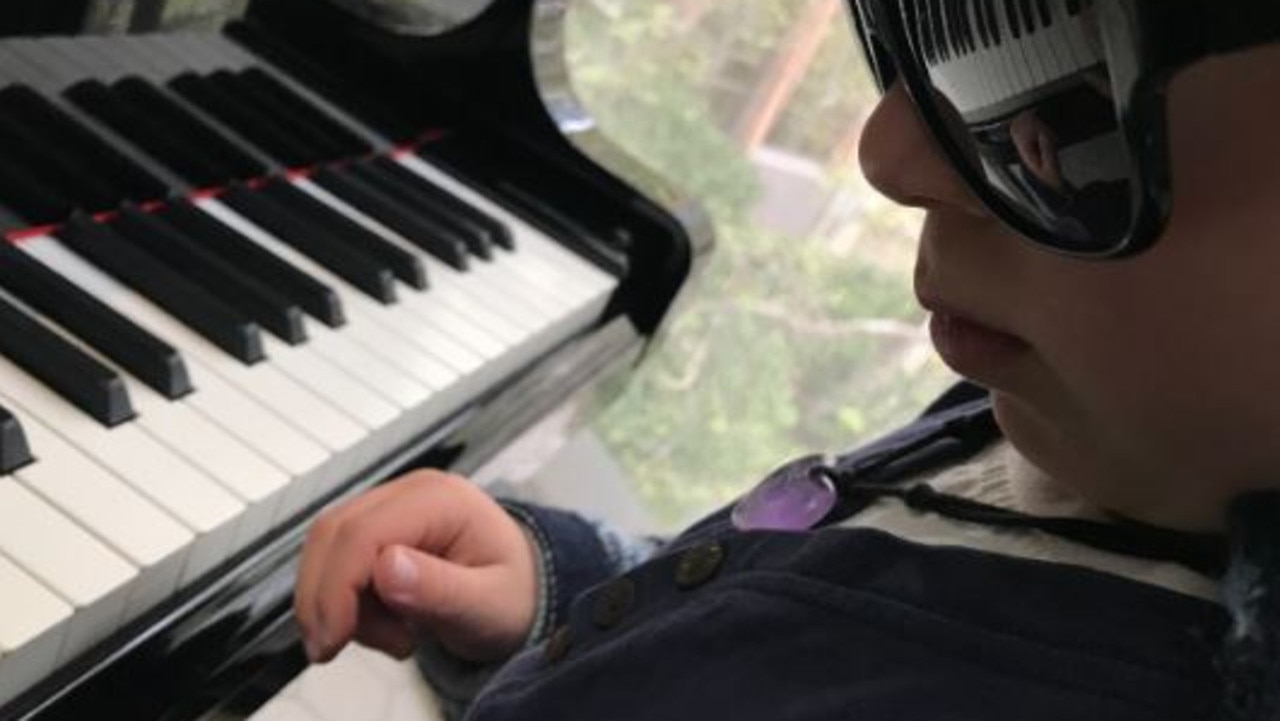‘Harmful’ NDIS music therapy cuts won’t save money
Australian health bureaucrats are considering cutting an essential therapy in a money-saving move experts claim will be deadly.

OPINION
Two psychiatrists were pulling their hair out. I was one of them. The other had admitted my massively distressed therapy patient to hospital, and now her agitation was making the nursing staff pull their hair out too. Why wouldn’t she stop pacing?
Into this crisis came a clinician called Rebecca*, a registered music therapist. She approached our patient gently but with a sharp eye for a nervous system in peak vigilance. Our patient later told me how Rebecca just seemed to know what to do.
She matched our patient’s gait, walking up and down the corridor alongside her, and tuned her voice in to the right rhythm and melody, volume and tone, for our patient to be able to hear her. Rebecca’s were the first words she had been able to listen to for days.
I have no doubt that this clinician saved the patient’s life; without her intervention, it was a real possibility our patient could have taken her own life, or died due to misadventure. Music therapy reached her in ways two psychiatrists and a team of nurses and other allied health staff couldn’t.

So when I heard that music therapy is under attack by health bureaucrats, I had to write this.
I am a psychotherapist and a musician, which means people often think I am a music therapist too. I am not. It is its own rigorous discipline for which I have the utmost admiration.
It’s not just acutely unwell patients who are assisted by music therapy. It can play a vital role in clinical care of neurodivergent kids, parents with postnatal depression, older adults with dementia, medical patients in hospital and rehabilitation, people with substance use problems or chronic pain and those in palliative care.
In fact, anyone who’s reading this – or someone they love – will likely need music therapy at some point in their lives.
By supporting recovery and preventing relapse for so many kinds of health conditions, music therapy saves the government a bucketload of money.
It’s a quiet achiever for a discipline founded on the making of sound; it needs us to shout loud now, for its future.
Yes, we know the health budget has to be reined in. But any money saved here will be lost in future as the loss of music therapy impacts the recovery paths of thousands.

For example, our patient’s stay in hospital cost thousands of dollars a day; Rebecca got her out of hospital sooner, and kept her there, saving many more thousands. You don’t need to be a health economist to see how mad it is to cut a service like this.
NDIS Minister Bill Shorten’s comment to Sky News on the matter is revealing: “I like art and music therapy, but we’ve got to make sure that it’s in the best interest of the participant”.
This tells us he doesn’t get it.
He doesn’t understand what my psychiatrist colleague and I saw in Rebecca’s work. Art and music therapies are not a matter of preference. They are evidence-based and essential. Not discretionary or added extras.
Rebecca tells me of the daily slog required to defend the legitimacy of music therapy work: “After years of Masters-level postgraduate study to become a registered music therapist we constantly face the same questions: ‘What is it you really do?’, ‘Are you just a volunteer?’, ‘Oh, you’re the singing lady, right?’ and ‘Where else do you sing?’ Imagine showing up to work, day after day, having to justify your existence. Who would willingly invest years of their life perfecting a craft only to endure that?”
Who would? Rebecca would, and does. And so do 950 registered music therapists whose practices and lives are in disarray this week.

They will keep enduring, because for all the misunderstanding and funding madness, there is hope in the remarkable recovery arcs of their patients.
One patient with schizophrenia told us, “All I know is that since starting music therapy it has improved my mental state and has helped with motivation. It is people like Rebecca who are changing the world for people who live with a mental health diagnosis. I credit her with how far I’ve come.”
Think of all the money Rebecca’s work saved the government.
I am sure Mr Shorten would like that very much.
*name altered for privacy reasons
Dr Matthew Roberts is a Melbourne-based psychiatrist psychotherapist, teacher and writer. He works in private practice in Heidelberg and in public practice at Peninsula Health in Frankston, and teaches for Monash University. He also developed the role of Fatherhood Clinician in his private practice to meet the peri-natal and family-life needs of fathers and is a founding member of the Australian Fatherhood Research Consortium





